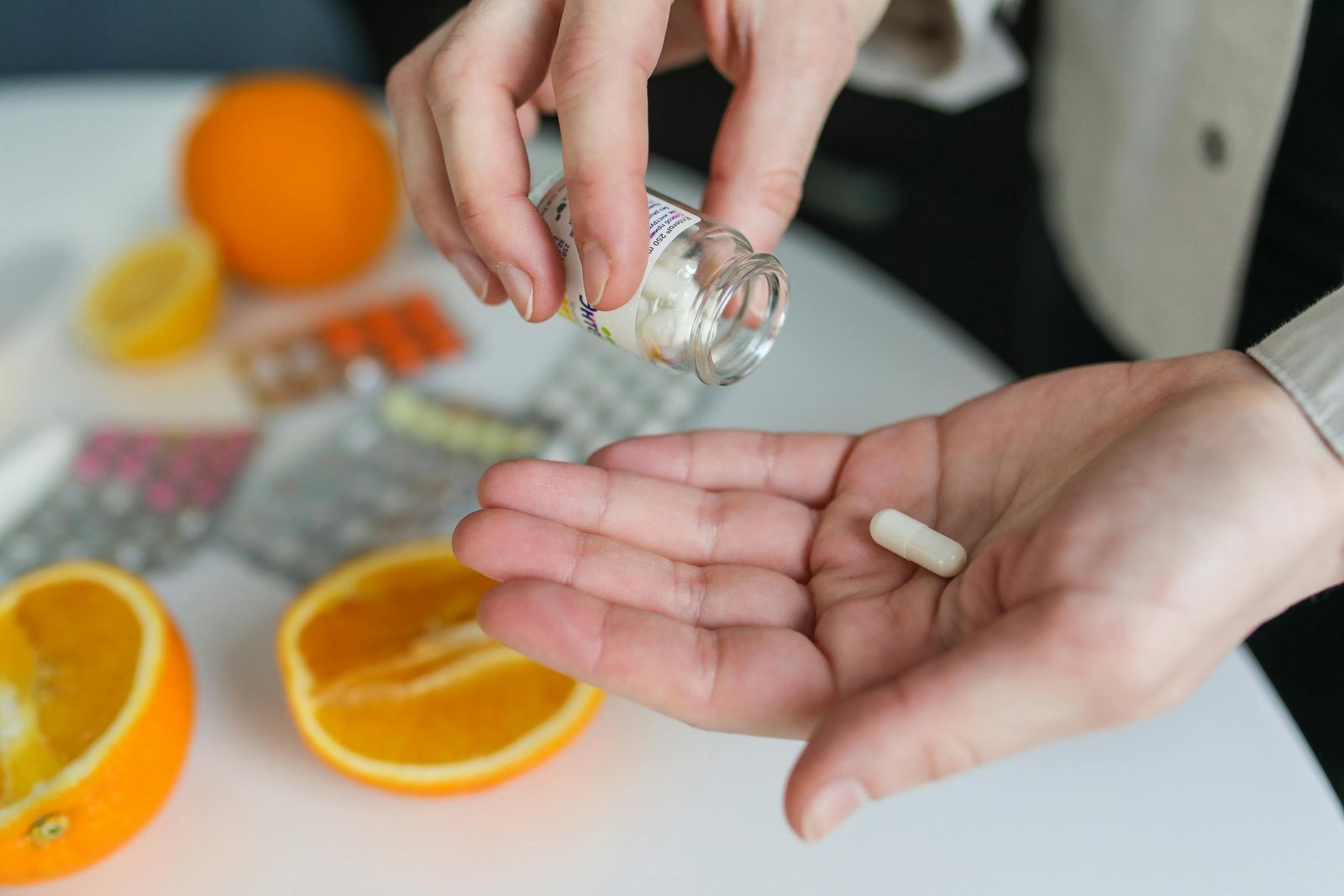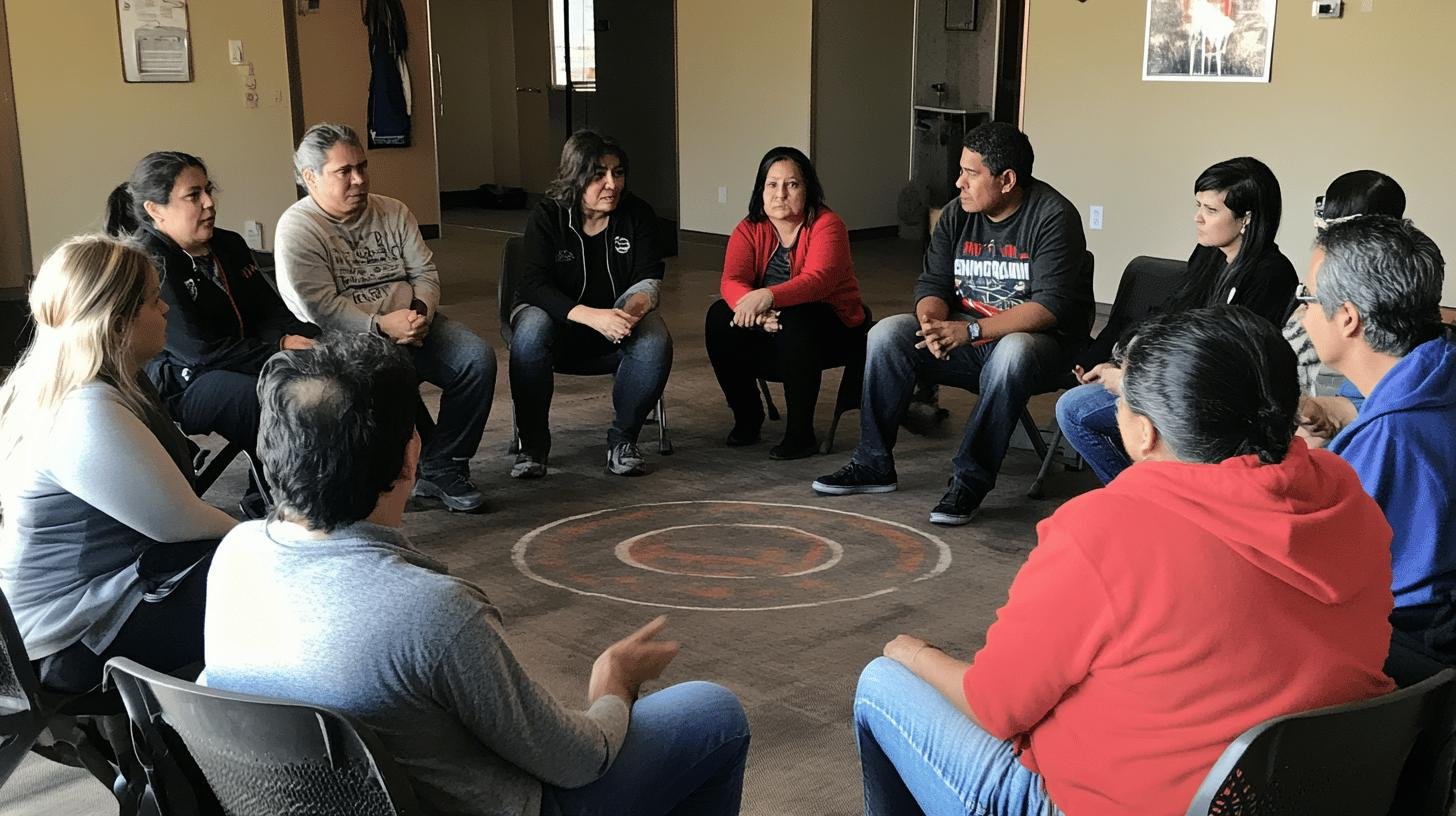TL;DR:
- Chronic Kidney Disease (CKD) is progressive; early detection is crucial to slow damage.
- Common symptoms include fatigue, swelling, shortness of breath, and changes in urination.
- CKD has five stages; regular checkups are essential.
- Lifestyle changes: Maintain blood pressure below 140/90 mm Hg by eating a balanced, low-sodium diet, regularly exercising (30 min/day), managing hydration, and avoiding smoking and alcohol.
- Key dietary guidelines: sodium <2,300 mg, phosphorus 800-1,000 mg, potassium 2,000-3,000 mg, protein 0.6-0.8 g/kg body weight.
- Medication adherence is vital; use organizers, reminders, and tracking.
- Build a support network for motivation and symptom management.
Ever wonder why chronic kidney disease (CKD) often stays under the radar until it’s too late? It’s like a quiet ninja sneaking up on your kidneys while you’re blissfully unaware. Most folks don’t notice symptoms until their kidneys are singing the blues. Early self-management of chronic kidney disease could be your secret weapon in this stealthy battle! We’ll discuss why catching CKD early is crucial and explore some handy self-management tips. Ready to dive into the kidney-saving tactics that’ll keep you ahead? Let’s get into it!
Understanding Self-Management of Chronic Kidney Disease
Chronic kidney disease (CKD) is like a slow train nearing kidney failure. It’s sneaky, often showing no symptoms until the kidneys are quite damaged. Catching it early is like discovering hidden treasure. It not only saves your kidneys but also cuts down on medical expenses. Early management lets you make lifestyle changes and take control of your health, slowing the disease’s progression.
Here’s a list of common CKD symptoms you might notice:
- Fatigue and frequent tiredness
- Swelling in ankles, feet, or hands
- Shortness of breath
- Changes in urination
- Nausea or vomiting
CKD stages range from 1 to 5, with 1 being mild and 5 severe. In Stages 1 and 2, symptoms may not be noticeable, so regular checkups are crucial. As the stages progress, self-management becomes vital. This involves monitoring diet, exercise, and medication. It’s like being a health detective, spotting clues before they become major problems. Understanding these stages helps you make informed choices, keeping you in charge of your health journey.
Lifestyle Changes for Managing CKD

Lifestyle changes are your secret weapon in managing CKD. Controlling blood pressure below 140/90 mm Hg is crucial and can be achieved with daily habits adjustments. Every healthy step you take protects you from kidney complications. A healthy weight eases the strain on your kidneys and helps prevent issues like heart disease and diabetes.
Here are some specific lifestyle changes to consider:
- Eat a balanced diet low in sodium and phosphorus
- Engage in regular physical activity, aiming for 30 minutes most days
- Monitor and manage your blood pressure regularly
- Stay hydrated, but avoid overhydration
- Quit smoking and limit alcohol intake
Stress management is key to CKD control. Stress affects blood pressure and well-being, making CKD harder to manage. Set aside time for relaxation like yoga, meditation, or a simple walk. Keeping stress under control supports your kidneys and mental health.
Exercise is like magic for managing CKD. It stabilizes blood pressure and boosts overall health. If you’re new to exercise, start slowly and pick activities you enjoy, such as walking, swimming, or cycling. Consult your healthcare provider for guidance if you’re unsure where to start. Ready to lace up your sneakers? Let’s move!
Dietary Tips for CKD Patients
Diet plays a key role in managing CKD. What you eat impacts kidney health, controls symptoms, and slows the disease’s progression. Keeping sodium levels low is crucial because high sodium can raise blood pressure, which is harmful to the kidneys. Think of your diet as a powerful tool for managing CKD and maintaining health.
| Nutrient | Recommended Intake |
|————–|————————|
| Sodium | Less than 2,300 mg/day |
| Phosphorus | 800 to 1,000 mg/day |
| Potassium | 2,000 to 3,000 mg/day |
| Protein | 0.6 to 0.8 g/kg of body weight/day |
| Fluid | As advised by your doctor |
Keep sodium under 2,300 mg daily. Avoid high-sodium foods like canned soups and snacks, opting instead for fresh or low-sodium versions. Phosphorus is another nutrient to monitor, as high levels can cause bone issues. Avoid sodas and processed foods, and choose fresh fruits and veggies.
Protein requires balance for CKD patients. Generally, it’s best to limit it so kidneys aren’t overworked. Aim for 0.6 to 0.8 grams per kilogram of body weight, prioritizing lean meats like chicken or fish over red meat or processed proteins. Mastering your CKD diet is within reach.
The Role of Exercise in CKD Self-Management

Exercise is crucial for managing CKD. It helps control blood pressure and blood sugar levels. Just 30 minutes of exercise most days is beneficial. Regular physical activity not only supports heart health but also reduces risks of high blood pressure and diabetes, which are often linked with CKD. Exercise also alleviates stress, improving your overall health and energy levels.
Low-impact exercises suitable for CKD patients include:
- Walking
- Swimming
- Cycling
- Yoga
- Tai Chi
Before starting a new exercise routine, consider CKD-related limitations like fatigue or muscle cramps. Start slow and increase activity gradually. Always consult your healthcare provider to create an appropriate exercise plan. Begin your fitness journey and help your kidneys thrive!
Medication Management and Adherence in CKD
Taking medication on time is vital in managing CKD. Following your medication plan is essential for health. Slipping up leads to complications and increased healthcare costs. Non-adherence results in 125,000 deaths and 10% of hospitalizations annually. Those pills are essential for maintaining health.
Here are strategies to stick to your medication plan:
- Use a pill organizer to sort weekly doses
- Set alarms or phone reminders
- Keep a medication diary for tracking
- Pair taking meds with daily tasks, like brushing teeth
Ignoring your medication plan can lead to serious health setbacks. Skipping meds might worsen CKD, requiring more meds, doctor visits, and expenses. Proper treatment prevents symptoms from spiraling into major health issues.
Regular health monitoring is also critical. Monitoring kidney health helps detect changes early. Regular check-ups and tests are essential. They allow adjustments to your treatment plan, keeping you in control rather than CKD.
Building a Support System for CKD Management

Support systems are your personal cheerleaders in managing CKD. A support network is vital in managing the condition. Navigating CKD resembles climbing a mountain, which makes it easier for people to lean on. It’s about having a team that keeps you motivated and helps you adhere to your management plan. Staying active and connected with others enhances mental health, easing CKD challenges.
Potential support sources include:
- Family members offering daily encouragement and care
- Friends providing emotional support and companionship
- Peer support groups to share experiences and advice
- Healthcare professionals guiding treatment and answering questions
Support systems boost morale and improve patient outcomes and quality of life. Understanding from those around you lightens the emotional burden and supports healthier habits. Whether it’s a family reminder for meds or a peer sharing their CKD journey, these interactions create a reliable support network. Build your network; it’s vital to your CKD management plan.
Final Words
Living with CKD can be overwhelming, but managing it with lifestyle changes, dietary habits, and exercise helps a lot. Adding a support system and sticking to medication makes a difference. Self-management spells out regular monitoring and catching early symptoms before they’re a big deal. Small steps can really impact your well-being.
Remember, self-management of chronic kidney disease isn’t just about following doctor’s orders—it’s about finding a balance. You get to be in the driver’s seat of your health journey. With patience and proactive care, better health is within reach!
FAQ
How do you self-manage chronic kidney disease?
Self-managing chronic kidney disease involves tracking your health, maintaining a kidney-friendly diet, exercising regularly, and adhering to a prescribed medication plan. Regular check-ups and understanding your stage of CKD are key.
What is the best lifestyle for chronic kidney disease?
The best lifestyle for chronic kidney disease includes controlling blood pressure and blood sugar, staying active, managing stress, and eating a low-sodium and low-protein diet. These practices reduce strain on the kidneys and promote better health.
How can I treat my kidney disease myself?
Treating kidney disease yourself means making informed diet, exercise, and medication choices. Focus on low-sodium foods, regular exercise, and adhering to medical advice to slow progression and manage symptoms effectively.
What not to drink if you have kidney problems?
If you have kidney problems, avoid sugary drinks, sodas, alcohol, and high-phosphorus beverages like cola. Staying hydrated with water and monitoring fluid intake is important for maintaining kidney health.

